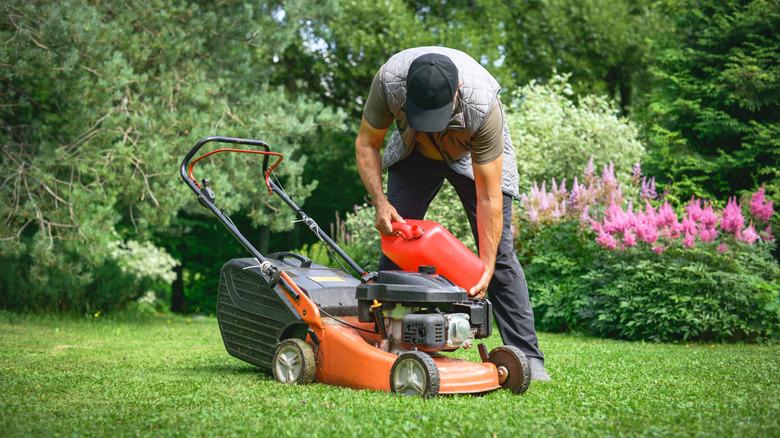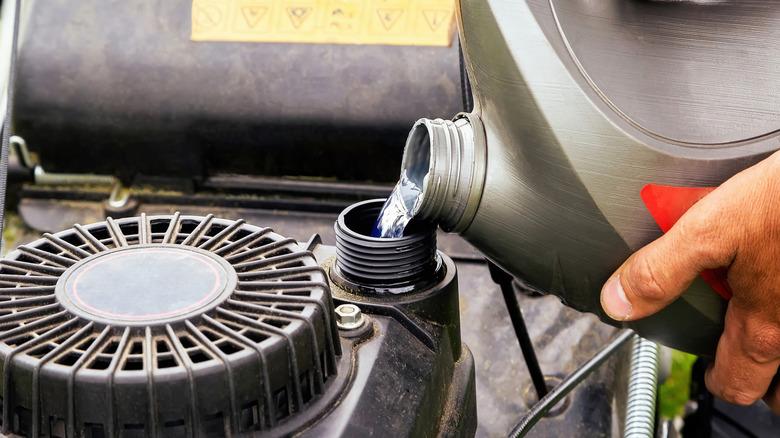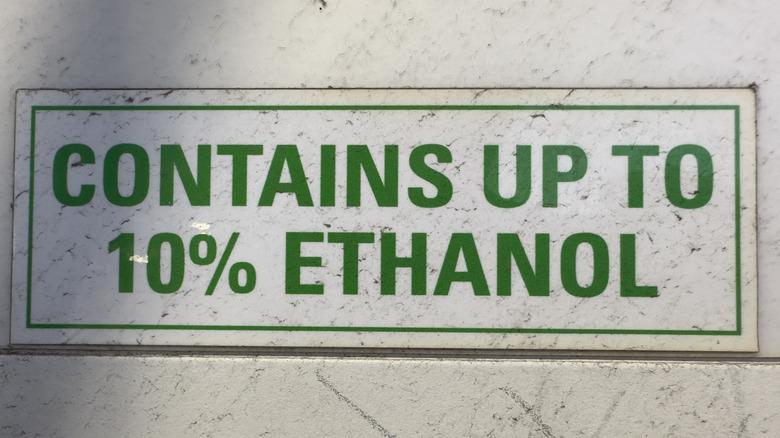Should You Ever Use Premium Gas In Your Lawn Mower?
We have good news and bad news. The good news is that you will almost certainly get no benefit from running premium gas in your lawn mower. The bad news is that the fuel you probably should be using costs almost as much as premium. What about ethanol-free? We will talk more about that later. First, though, what constitutes premium gasoline varies from state to state, but generally speaking, regular gas has an octane rating of 87 and premium has an octane rating of 91-93. The octane rating is simply a measure of how smoothly high-performance engines will run; higher octane ratings mean reduced premature ignition, which means smoother running. This benefit simply doesn't help with a mower engine's performance.
According to AAA, the nationwide average price of premium gasoline at the time of writing is around $4.00 a gallon. Meanwhile, according to the U.S. Energy Information Administration, regular gasoline costs an average of around $3.22. So you'd be paying around 78 cents extra per gallon of premium fuel, or $3.90 extra to fill up a five-gallon gas can.
The advantage of using premium gas
Some premium gas does have one advantage over regular. Because it's often formulated with more stable hydrocarbons than 87-octane fuel, higher octane premium gasoline tends to break down more slowly than regular. In fact, 93-octane premium gas lasts as much as three times as long in storage as regular, if you can find (and afford) it.
Lawn mower engines are notably less complex than car engines, yet most car and mower engines are designed to work optimally with at least 87-octane regular gasoline. One notable difference is that you're likely to park your mower for months at a time without starting the engine, which is probably not true of your car. As a result, mower engines are more prone to problems related to fuel breakdown, which can start as soon as 30 days after the tank is filled. As the mowing season draws to a close, it's a good idea to use fuel stabilizers to combat this breakdown, or run the engine dry of fuel before storing the mower for the winter. (Simply emptying the tank will leave gas in the fuel lines and carburetor, where it does the most damage.)
Is ethanol-free a good compromise?
But another expensive grade of fuel might help your mower: Ethanol-free gasoline is often regarded as a preferred fuel for the longevity of gas-powered lawn equipment like mowers. And, like premium gas, it's also quite expensive. Service stations reporting prices to E85 Prices at the time of writing sold it for an average of $3.89 per gallon, 85 cents more than the same stations' price for standard 10% ethanol gas.
Ethanol increases octane rating, which your mower doesn't need, and it shortens the shelf life of fuel so that disposing of stale gasoline becomes even more of a struggle. It also tends to corrode parts of your mower's fuel system and will, over time, cause the engine problems like the mower dying while cutting grass or the engine only running briefly when you use starter fluid in the mower carburetor. The most obvious way this corrosion interferes with a small gasoline engine is by clogging its carburetor jets, thereby preventing fuel from being available to the engine. And while some mowers claim to work with gas that is 10 percent ethanol, experts say ethanol will eventually take its toll. Unfortunately, ethanol-free gas might be difficult to find; more than 98% of the gasoline sold in the U.S. contains ethanol. Of the 136 service stations reporting prices to E85 Prices, only 17 reported a price for no-ethanol fuel. Since ethanol undermines the ability of premium gas to last longer in storage, and since ethanol-free fuel is a little cheaper than premium, if you can track down no-ethanol gas, it's probably a good compromise.


